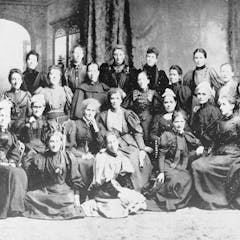
Articles on New Zealand history
Displaying all articles

Beyond the familiar ideas of mateship and sacrifice, Anzac Day offers an opportunity to teach young people a more complicated but meaningful version of history.

A more precise timeline now shows Polynesian ancestors of Māori first settled in the North Island before expanding south and then retreating again when the climate changed.

Anzac soldiers wrote poetry about body lice, shared treatment tips and experimented with new ways of bathing.

During the European Middle Ages, parts of the world experienced warming similar to that between 1960 to 1990. But the rising temperatures we’re observing now are global and exceed the past record.

We now know how the father of New Zealand’s suffrage pioneer died, and it raises fascinating questions about what drove her morally and politically.

New Zealand’s 2020 budget must not only provide economic hope, it must balance the very different ideologies and aspirations of two earlier historic budgets.

New Zealand will pardon religious Māori leader Rua Kēnana, who was arrested more than a century ago for “moral resistance”, but the pardon fails to acknowledge the miscarriage of justice.

Almost 140 years after armed government troops crushed peaceful protests at Parihaka, New Zealand is beginning to make amends with the signing of a reconciliation law and a compensation agreement.

Teaching history is as much about facts and people as it is about contested narratives and disputed interpretations, which is why it’s time to make New Zealand history a compulsory subject at school.

The Treaty of Waitangi provides New Zealand with a convention for working through issues with a commitment to cultural diversity.

2019 marks the 250th anniversary of Captain James Cook’s arrival in New Zealand and the beginning of European contact with Māori.
